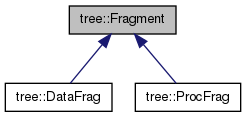|
LRDE Tiger Compiler
1.34a $Id: 7fef12e1f5fa43449d667a0eec1d837c40fc1202 $
|
|
LRDE Tiger Compiler
1.34a $Id: 7fef12e1f5fa43449d667a0eec1d837c40fc1202 $
|
Piece of intermediate representation resource. More...
#include <fragment.hh>

Public Member Functions | |
| virtual std::ostream & | dump (std::ostream &o) const =0 |
| virtual | ~Fragment () |
Visitors entry point. | |
| virtual void | accept (Visitor &v)=0 |
| Accept a Visitor v. | |
| virtual void | accept (ConstVisitor &v) const =0 |
Piece of intermediate representation resource.
A Tiger program may include strings. These strings are not left as is in the body of the IR, rather we associate a label to them, and use that label instead.
We store the string elsewhere, to be output in a format which is assembly language dependent. DataFrag are used for this. It is under the responsibility of translate:: to keep all the fragments.
The same thing happens with function declarations: they will be output elsewhere. This is what ProcFrag is used for.
|
virtual |
|
pure virtual |
Accept a Visitor v.
Implemented in tree::ProcFrag, and tree::DataFrag.
|
pure virtual |
Implemented in tree::ProcFrag, and tree::DataFrag.
|
pure virtual |
Implemented in tree::ProcFrag, and tree::DataFrag.
Referenced by tree::operator<<().